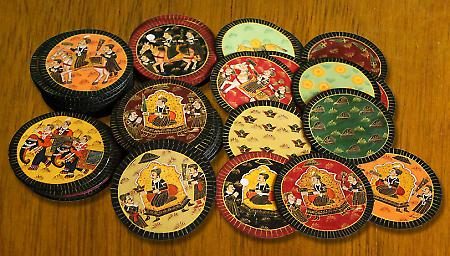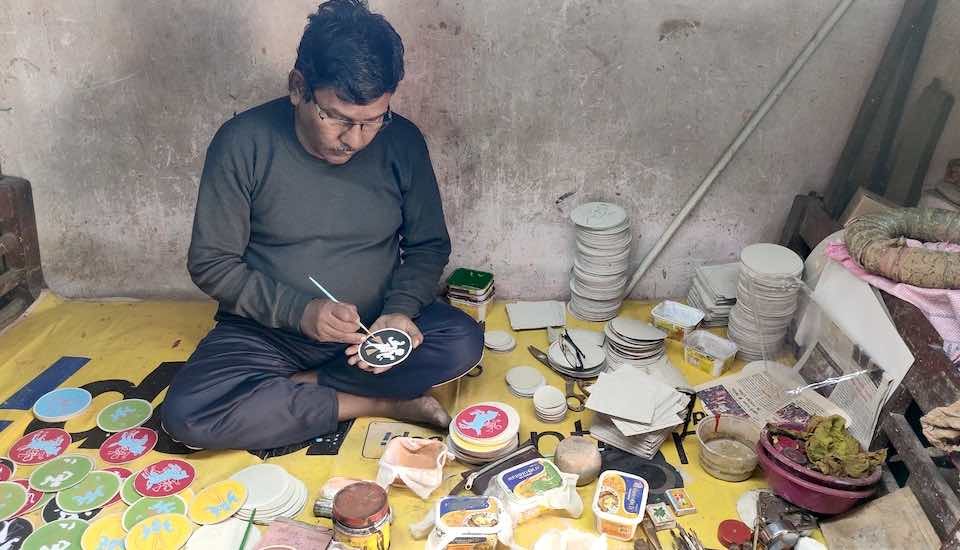How do you find a game of rummy or bridge? I guess it fascinates most of us. But what if I say that there were certain sets of playing cards where the pack contained more than 52 cards and are mostly circular in shape? Amazing, right?

The cards which I will talk about in this post are a type of Ganjifa playing cards. Before that, let us understand how the Ganjifa cards came into existence. So, the word ‘Ganjifa’ is derived from a Persian word meaning treasure. The Ganjifa Card game was played in Persia and the middle east in the leisure time as an indoor game. Later on, along with Persian traders and rulers, the Ganjifa cards travelled to countries like India, Spain, Italy and a few more where they went.

Ganjifa cards were a popular indoor game in the courts of the Mughal rulers of India. It was often played in courts of emperor Akbar too. Malla King of Bishnupur of Bankura District of West Bengal, Bir Hambir, visited Akbar’s court often. He took an interest in the Ganjifa Card game and thought about developing a unique card game inspired by the Mughal Ganjifa Cards. He named the cards ‘Dashavatar Taash’ after the 10 incarnations of Lord Vishnu.

The 10 incarnations (Avatar) of Lord Vishnu are respectively Matsya (fish), Kurma (turtle), Varaha (boar), Nrishingha (half man-half lion), Vaman (dwarf), Parashurama (the warrior with the axe), Rama (prince and king of Ayodhya), Krishna (eighth son of Devaki and Vasudeva, commonly worshipped deity of the hindus), Buddha (founder of Buddhism), Kalki (the warrior atop horse and a brandishing sword in hand).

The Dashavatar Taash is a pack of 120 cards with 10 suites of 12 cards each. 3 or 5 players play it. Rama or Krishna Cards are the lead suites. If played during the day time, Rama is the lead suit, during the night, Krishna becomes the lead suit. The player that holds the lead suit begins the game by playing 2 cards at once. These 2 cards are the lead suit card and another lower card. There are other elaborate rules and regulations which are followed while playing the Dashavatar Ganjifa Cards.

The Dashavatar Cards are completely hand made. Pieces of cloth are folded repeatedly to make a structure. Tamarind seed glue is used to paste the folds so that they held each other together. Chalkdust is rubbed upon both the sides and smoothened. Then they are cut in a circular shape with a 4.5-inch radius. The images of the 10 incarnations are drawn upon these cards using traditional folk-art style and the back sides are sealed using lac and vermillion. Paints made from natural sources are used. The craft of making these cards itself is a dying craft now.

At present, the Fouzdar family of Bishnupur, West Bengal, is striving hard to uphold the family tradition as well as the forgotten cultural heritage of Bengal by making these cards and teaching the interested people the nuances of the forgotten indoor game.


Very informative indeed..